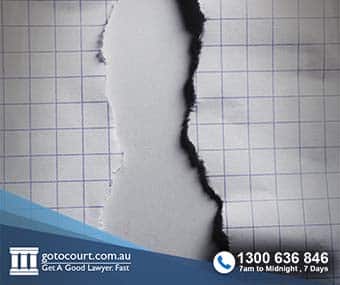Debt Recovery (WA)
When a party is owed money by another party, there are a number of steps they can take to try to recover the amount owed. This page deals with debt recovery in Western Australia.
Try to resolve the dispute directly
It is always a good idea to attempt to come to an arrangement with a debtor directly before initiating legal proceedings. This can often save significant time, money and effort. However, if your debtor still does not pay the debt, you may need to commence proceedings.
Letters of demand
The final step a creditor should take prior to commencing legal proceedings is to contact the debtor and make a formal demand for payment. This is known as a letter of demand.
The letter should set out what is owed, what it is owed for, and when payment is demanded by. It should include:
- details of the debt including how and when it arose, accompanied by advertisements, invoices, and any previous correspondence
- when payment is demanded – set a timeframe for payment and advise that legal action will be commenced if payment is not received by that date
- how payment should be made – for example, the creditor’s bank details.
If the debtor fails to pay the debt in response to a letter of demand, the next step is to initiate a claim in a court or tribunal.
The forum to commence proceedings will depend on the amount of money you are owed.
Minor case claim
If your claim is for less than $10,000 then you will need to commence a minor case claim in the Magistrates Court.
After filing the claim you will need to serve it on the defendant/debtor, who then has 14 days to file a response. The matter will then be listed for hearing. Lawyers are not permitted at these hearings, unless both parties and the court agrees.
In minor case claims involving lawyers, parties will generally have to pay their own costs.
General procedure claims
If your claim is for an amount exceeding $10,000 but less than $75,000, you will need to commence a general procedure claim in the Magistrates Court.
You must file and serve your claim on the defendant/debtor, who has 14 days to respond, after which a hearing date is set.
Parties are entitled to legal representation for a general procedure claim as the proceedings are more formal and more strict rules of evidence apply.
In general procedure claims, the magistrate will generally order that the party who loses is liable to pay the winning party’s costs, however this is not guaranteed. If you are successful in seeking payment for less than $10,000 and elect to commence proceedings as a general procedure claim rather than as a minor case claim, you will be liable to pay your own legal fees.
Other claims
If your claim is for more than $75,000, you will need to commence proceedings in the District Court.
Seek legal advice
Before commencing proceedings, you should always seek legal advice. A lawyer will assist you with ensuring that:
- your application is within the correct time limits
- you have commenced your application in the correct court and format
- you have collated sufficient evidence to prove your claim
- you can establish a legal basis for your claim
- it is financially worthwhile to pursue the claim in court.
Enforcing a court judgment
Sometimes, even after the court has awarded judgement in a creditor’s favour and ordered the defendant to pay the amount owed, payment is not forthcoming.
In this situation, the next step is to commence enforcement proceedings in the Magistrates Court, either by a means inquiry or property (seizure and sale) order.
A judgment creditor must commence enforcement proceedings within 12 years of obtaining judgment, though if proceedings are commenced more than six years after the judgment, the creditor will require the leave of the court to proceed.
Means inquiry
When enforcement proceedings are commenced, a means inquiry will be held. This involves the judgment debtor appearing before a magistrate to answer questions about their financial position.
The magistrate may then make an order about how the judgment debtor is to pay the debt. This may be as a lump sum or in instalments.
Property orders
A property order authorises the sheriff or bailiff to seize and sell the judgment debtor’s personal property and real estate to pay the debt. It is the creditor’s responsibility to ascertain whether the judgment debtor has sufficient property to sell and whether such an order will be likely to succeed.
If you require legal advice or representation in any legal matter, please contact Go To Court Lawyers.








